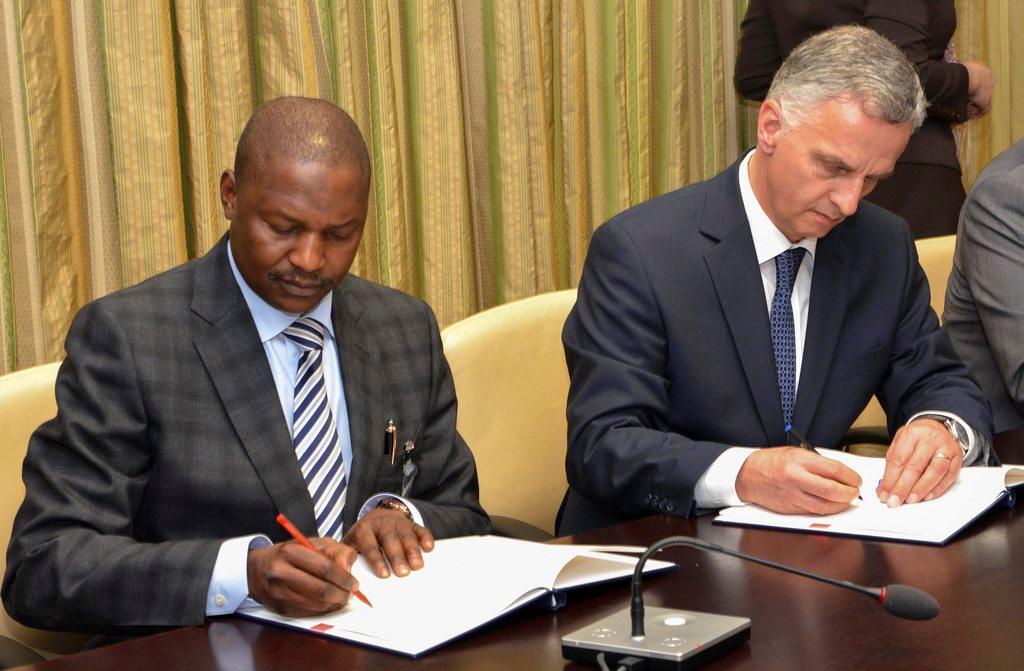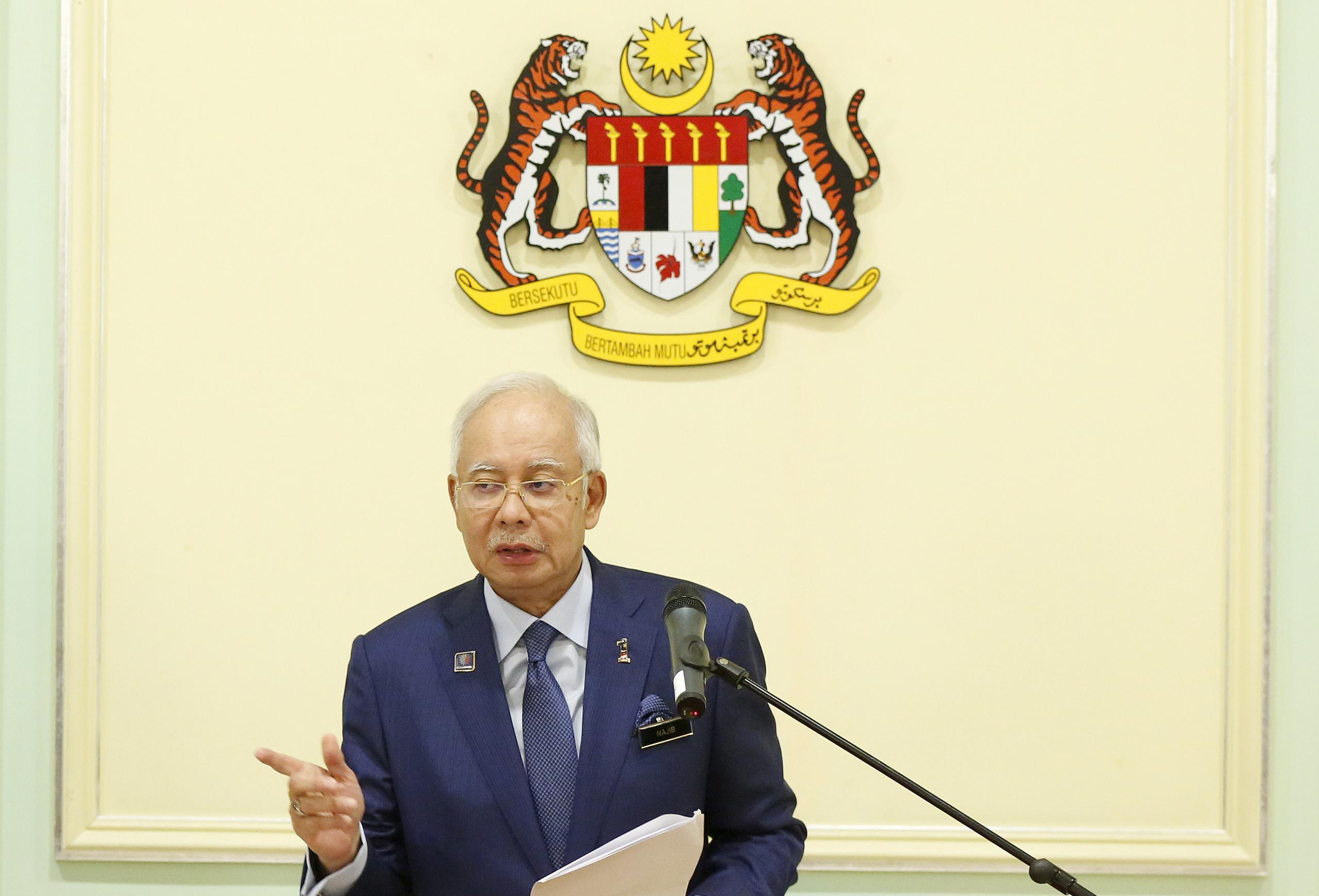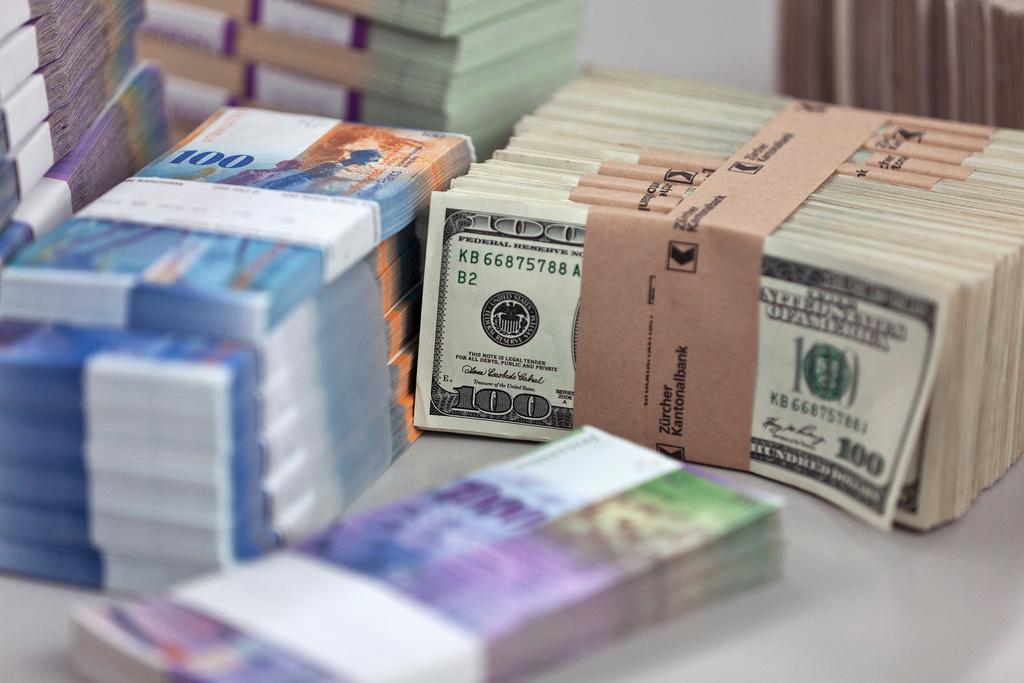Agreement secured on return of Abacha funds

Switzerland and Nigeria have signed a letter of intent aimed at the quick and equitable restitution of CHF321 million ($321 million) siphoned off by the family of Nigeria’s former dictator Sani Abacha and confiscated by Switzerland.
Swiss Foreign Minister Didier Burkhalter and Nigerian Justice Minister Abubakar Malami San signed a letter of intent on Tuesday that outlines the modalities concerning the return to Nigeria of the money frozen by the Swiss authorities.
Nigeria has long been chasing funds taken by the Abacha clan while Sani Abacha was in power from 1994-1998. Overall, the Abacha clan is thought to have diverted a total of about $5 billion from the Nigerian treasury. Much of it ended up abroad, including in Switzerland.
“The signing of the letter of intent is an important step towards the restitution of the funds under the control of the World Bank, which was made possible by the confiscation by the Geneva prosecutor’s office of this amount initially held in accounts in Luxembourg,” the Swiss foreign ministry said in a statement.
The Abacha money frozen by the Swiss is due to be returned to the Nigerian authorities following the abandonment of criminal proceedings in 2015 against Abba Abacha, the son of the former dictator. This follows a July 2014 dealExternal link by Nigeria and the Abacha family.
For social programmes
Following the signing in Abuja, Burkhalter indicated that this document confirms the principle that the millions would be returned to Nigeria overseen by the World Bank.
The foreign ministry said such monitoring is a “legal demand” in order for the funds to be properly returned to Nigeria and used to support social programmes for the Nigerian people.
In an open letter published on Monday, a coalition of Swiss and Nigerian NGOs urged the authorities of both countries to reach an agreement for the restitution of the millions which “improves the living conditions of the Nigerian population”.
They say the funds must be allocated to “projects of public interest” in a transparent process involving Swiss and Nigerian NGOs, and paid in instalments over time, with close monitoring by the World Bank and independent auditors.
Switzerland recently passed a new law that aims to speed restitution of illicit funds stashed in the alpine country and to show that Switzerland is no longer the banker of choice for foreign despots.
Sonja Isella, a spokesperson for the Swiss foreign ministry, said the modalities for the restitution should be “simpler than in the past”.
Olivier Longchamp, a dictator funds expert at the Swiss Bern Declaration NGO, remains cautious, however: “We have the feeling that the Swiss authorities are on the same wavelength as us, but we don’t know if this will be translated into acts.”
History repeating?
The NGO coalition is concerned that “history may repeat itself”. Between 1999 and 2005, Switzerland returned $700 million to the authorities in Abuja that had been seized from accounts belonging to the former Nigerian president and his clan.
But this restitution was problematic. Under pressure from Swiss and Nigerian civil society, the World Bank established a monitoring scheme, a posteriori, recognising that it was impossible to know exactly how these funds had been used.
More recently, in 2014, Liechtenstein returned $203 million in misappropriated Abacha funds to Nigeria. Various media reported in February 2016 that these funds had been returned with a lack of suitable precautions. While they were intended to be used by President Goodluck Jonathan’s government to purchase weapons to fight the terrorist group Boko Haram, they have reportedly vanished without a trace.
Longchamp said it seemed as if Liechtenstein repeated exactly the same error as the Swiss in not implicating the World Bank earlier in the process.
“They had good intentions, but even with good intentions in these kinds of situations it can lead to problematic results,” he added.
Over the past 25 years, Switzerland has returned $1.8 billion in stolen or embezzled funds seized from accounts held by dictators in Swiss banks (see graphic below).

In compliance with the JTI standards
More: SWI swissinfo.ch certified by the Journalism Trust Initiative














You can find an overview of ongoing debates with our journalists here . Please join us!
If you want to start a conversation about a topic raised in this article or want to report factual errors, email us at english@swissinfo.ch.